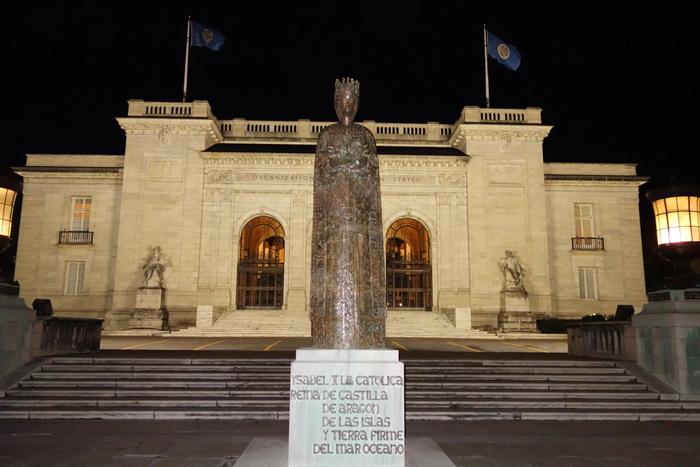Women Resist Diplomatic Push Enshrining Abortion As A Human Right
Pro-abortion groups are utilizing an international court to bypass constitutional guarantees of the right to life.

A non-partisan group of Latin American women are calling on the Organization of American States (OAS) to adhere to international-recognized human rights treaties and refrain from using biased terms such as “sexual and reproductive rights,” “hate speech,” and “women or girls in all their diversity” during the 53rd General Assembly of the international body this week.
The Collective of Free and Sovereign Women, which has representatives throughout the Americas, says that the Inter-American Commission on Human Rights, which is part of the OAS, has been corrupted by the above terminology that is not included in the documents establishing the commission.
At issue for the OAS is whether the right to abortion should be established throughout the American continents, even though the American Convention on Human Rights clearly states:
“Every person has the right to have his life respected. This right shall be protected by law and, in general, from the moment of conception. No one shall be arbitrarily deprived of his life.”
Marcela Errecalde, a co-founder of the women’s collective, affirmed regarding the Inter-American Commission on Human Rights (IAHCR), “The international law framework that governs it is clear in terms of rights recognized and protected, however, through influences from different actors, the Commission and the Inter-American Court have produced documents and resolutions that distort these rights.”
Errecalde is one of the speakers for various civic organzations during the June 21-23 conference in Washington DC.
“The IAHCR must implement programs and activities consistent with its laws and policies,” Errecalde said in a statement, and “build the capacity of health systems and mobilize resources to implement health and development programs that meet the needs of women and children in situations of vulnerability and promote universal health coverage; foment public health policies favorable to women and girls, as well as families, support the role of the family as the foundation of society and as a source of health, support and care.”
Errecalde reported that pro-life advocates are expecting the Inter-American Human Rights Court (IAHRC) to rule soon on the controversial case "Beatriz v. El Salvador,” which has pitted groups funded by Planned Parenthood against the government of the Central American nation. El Salvador is the only country in Latin American whose constitution specifically mentions that human life begins at conception and is thereby protected by law.
Beatriz was a young woman whose unborn baby was found to have a congenital defect. Her petition to have an abortion was denied by El Salvador’s supreme court, which cited the country’s constitution. She later delivered the baby, which died within hours. Beatriz herself would die in a traffic accident later, but pro-abortion groups have used her memory to bolster their case to over-rule El Salvador’s constitution by order of the IAHCR.
Errecalde said, according to a press release, that despite her later death in traffic accident, pro-abortion advocates intend to use her memory to “promote abortion, which is violence against women and not a recognized right within the framework of international law governing to the IAHRC. The judges of the court must stick to their mandate and recognize the first right of all the inhabitants of our American continent: the right to life.”
Some observers believe that should the OAS enshrine abortion as a human right, even the U.S. Supreme Court's 2022 decision vacating Roe v. Wade would be over-ruled, thereby making abortion a human right in the United States.
For background on Beatriz v. El Salvador see here.
Martin Barillas is a retired diplomat, and author of 'Shaken Earth', which is available at Amazon. Signed copies are available by writing martinbarillasdelapena@gmail.com